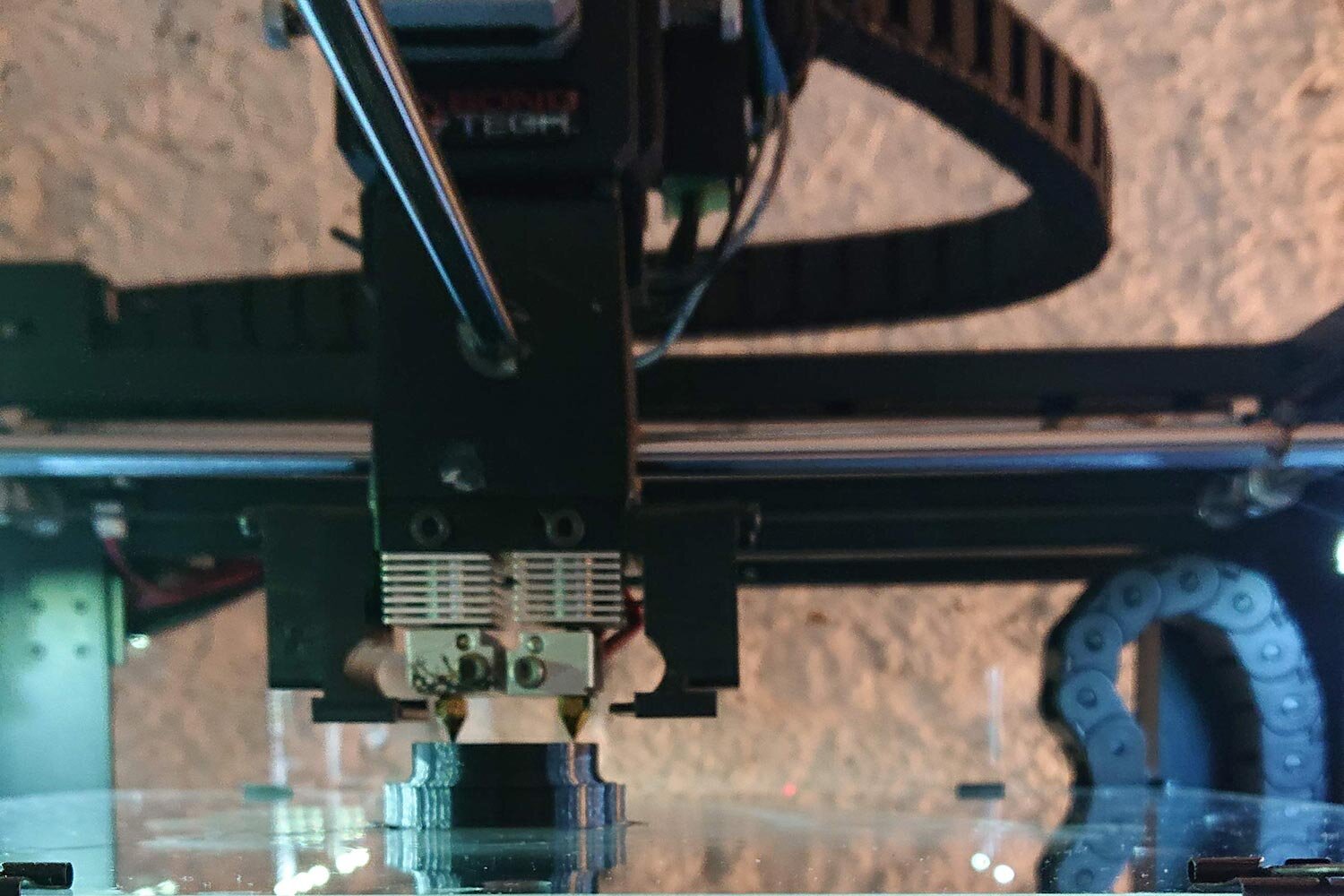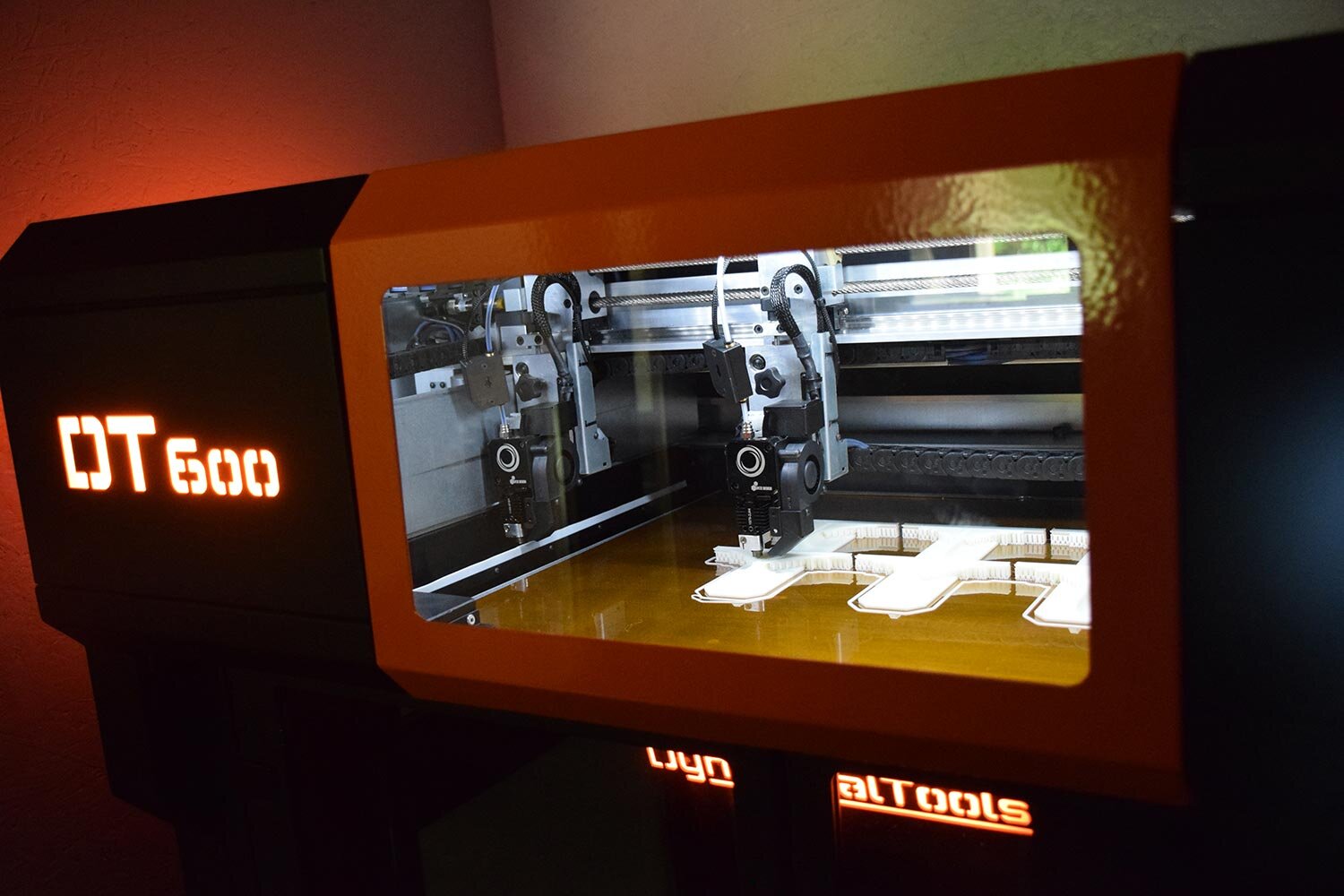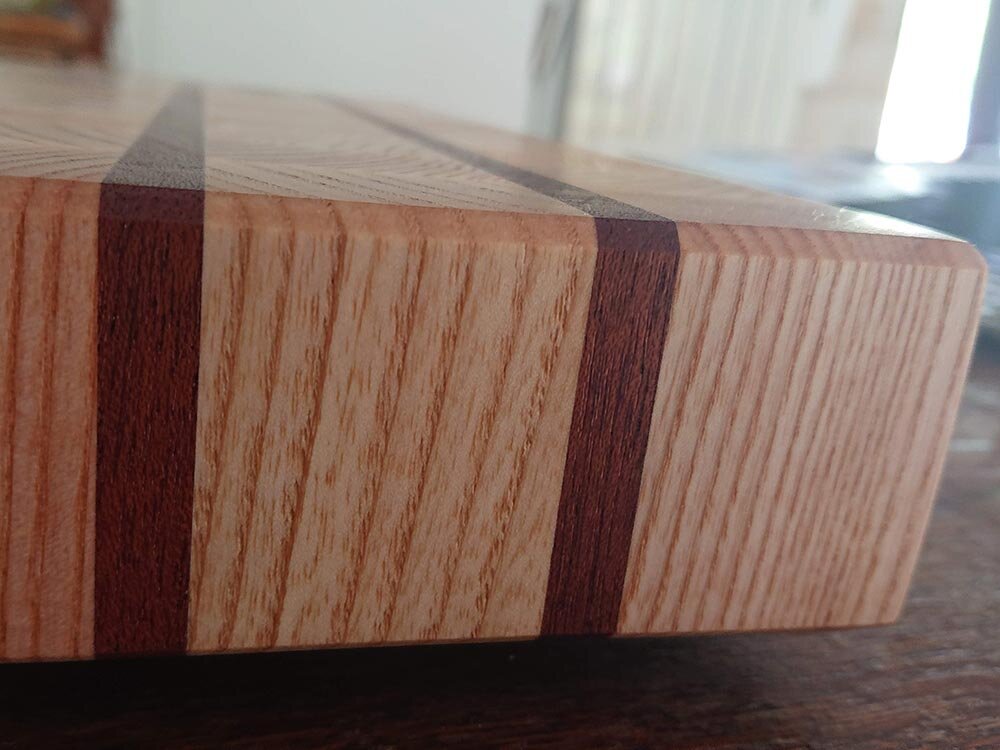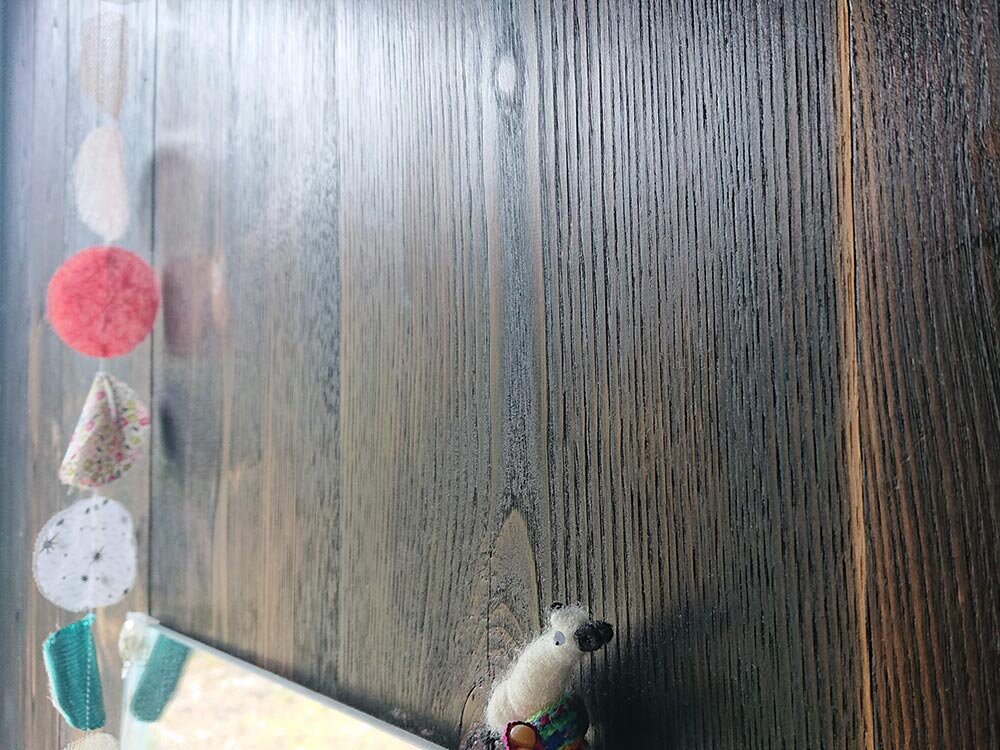From engineering grade polymers to recycled or reclaimed natural woods. Beautiful solutions perform beautifully
Fabriworks places a premium on all the materials we use
The suitability of any material is the result of a careful selection process that considers material characteristics, finish, cost and sustainability. This applies to all projects - from high performance polymers for 3d printing a metal-replacement engineering bracket to reclaimed hardwood for a CNC-cut custom display panel.
3d printing
3d printer technologies generally fall into one of three main categories:
Fused filament fabrication (FFF) also called FDM (fused deposition modelling) is the process of laying down an extrusion of thermoplastic material along toolpaths that have been created in a slicer software. Each thin slice (typically 0.05-0.6mm thick) is laid down on top of the previous one, building the object layer by layer. Fabriworks’ advanced workshop is equipped with FFF/FDM printer technology.
UV-cure resin printers or stereolithography printers (SLA) use either a laser or another ultra-violet (UV) light source to polymerise thermoset resins one layer at a time. Although this technology allows for high levels of detail and resolution, the available resins are often inferior to their thermoplastic counterparts.
Selective laser sintering printers (SLS) lay down a thin layer of extremely fine powder which is then sintered (melted) layer by layer to form the part.
Thermoplastics
With a focus on material characteristics and performance, Fabriworks is equipped with high performing FFF/FDM printers capable of printing most thermoplastics. Our advanced workshop is also equipped with a desktop extruding system. This means we can recycle material and create our own thermoplastic filament.
Fabriworks commonly works with: PLA, PET-G, ABS, ASA, PC-ABS, TPU, PA6, PA6/66, PA12, PC, PPS, PEKK. Speciality grades, glass- and carbon-filled and even flame-retardant materials are also available.
We only work with the best quality providers and can extrude our own filament from raw pellets or recycled material.
Standard – PLA; ABS; ASA; PET-G
PLA is one of the most common of 3d printed thermoplastics thanks to its high performance and easy processability. Derived from renewable resources (corn/tapioca/sugar), PLA is a semi-crystalline and biodegradable (not the same as compostable!) plastic that is available in a huge variety of colours.
ABS has high stress and impact resistance but can often be tricky to process as it shrinks as it cools – an intended characteristic for injection-moulding processes. With our large, heated printing chambers exceptional results are possible. Along with painting and sanding, ABS can be post-processed with a vapour smoothing process.
ASA – Similar mechanical properties to ABS but with excellent resistance to UV and general weathering, making it the go-to polymer for outdoor use.
PET-G is a modified polyester commonly found in bottles, food packaging and many fabrics. As a co-polymer, many different grades with many variable characteristics are available.
Flexible – TPE; TPU; TPA
Technically, all amorphous thermoplastics with a glass transition temperature below ambient conditions would be considered ‘flexible’. Mostly, however, when we refer to flexible filament, we’re referring to a thermoplastic elastomer (TPE) or perhaps more specifically, a thermoplastic polyurethane (TPU) or a thermoplastic polyamide (TPA). Available in a range of hardness, these elastomers show exceptional toughness and good chemical resistance.
Industrial – PA6 (filled, unfilled, flame retardant); PA6/66; PA12; PA-CF; PA-GF; PA-GF FR; PP; PC; PC-ABS
PA - Generically referred to as nylons, polyamides are the industrial workhorses of polymers. Available in a wide variety of grades, most with filled (glass, carbon, etc) or unfilled variants, polyamides have excellent mechanical properties, low creep, and high impact strength (toughness) as well as high temperature resistance. However, PAs are notoriously hygroscopic and require careful drying and pre-print processing techniques to be printed successfully.
PP – Polypropylene is well known and widely used in injection moulding for its low cost and exceptional impact resistance when it comes to demanding applications. Parts made from PP are nearly indestructible but it presents considerable difficulties to print well - namely, warping and layer adhesion.
PC – Polycarbonate is a high strength material for use in tough environments and engineering applications. High heat deflection, dimensional stability and impact resistance are key characteristics. PC is another very hygroscopic polymer that requires careful preparation before and during printing. PC is often blended with other resins to further enhance its properties. PC-ABS for example, combines the excellent low temperature properties and high processability of ABS with the superior mechanical properties of PC.
Specialist – PA6/66-GF20 FR (EN 45545-2, NFPA 130 (ASTM E162, ASTM E662) and SMP 800-C); PEKK; PVDF; PPS, VRX110/130 support and sacrificial tooling.
These extremely high-performance polymers have specific use cases and properties that require individual consideration. Size, part-geometry, and support options may be limited.
Finishing and painting services available for prototypes and presentation models. Printer capacity up to 600mm x 450mm x 450mm; heated chamber to 120°C and 500°C maximum nozzle temperature.
CNC machining
The variety of sheet materials suitable for CNC machining is vast, as is the range of possible uses. Depending on the type of project, we can advise on plastics, wood and natural materials, composites, and non-ferrous metals.
For moulds and master model plugs we commonly suggest PU foam tooling boards. Available in a range of densities, they are perfect for accurately machining even small features and can be easily bonded to form large structures.
Acrylic, POM, PET, PC and PVC are just some of the sheet plastic materials we process here at Fabriworks. We also work closely with suppliers who can supply offcuts to keep waste to an absolute minimum.
All wood materials are sourced from certified sustainable forests or reclaimed hardwood. As well as top quality Baltic birch ply we have a range of hardwoods including European oak, chestnut, cherry, beech and ash.
One of the important attributes of our Exel CNC Routing Centre is its positive pressure high speed spindle which is ideal for safely machining carbon composites. Advanced composite panels with custom layups and cores can be custom created in-house - or standard stock sheet can be sourced - and CNC cut to final dimension.















